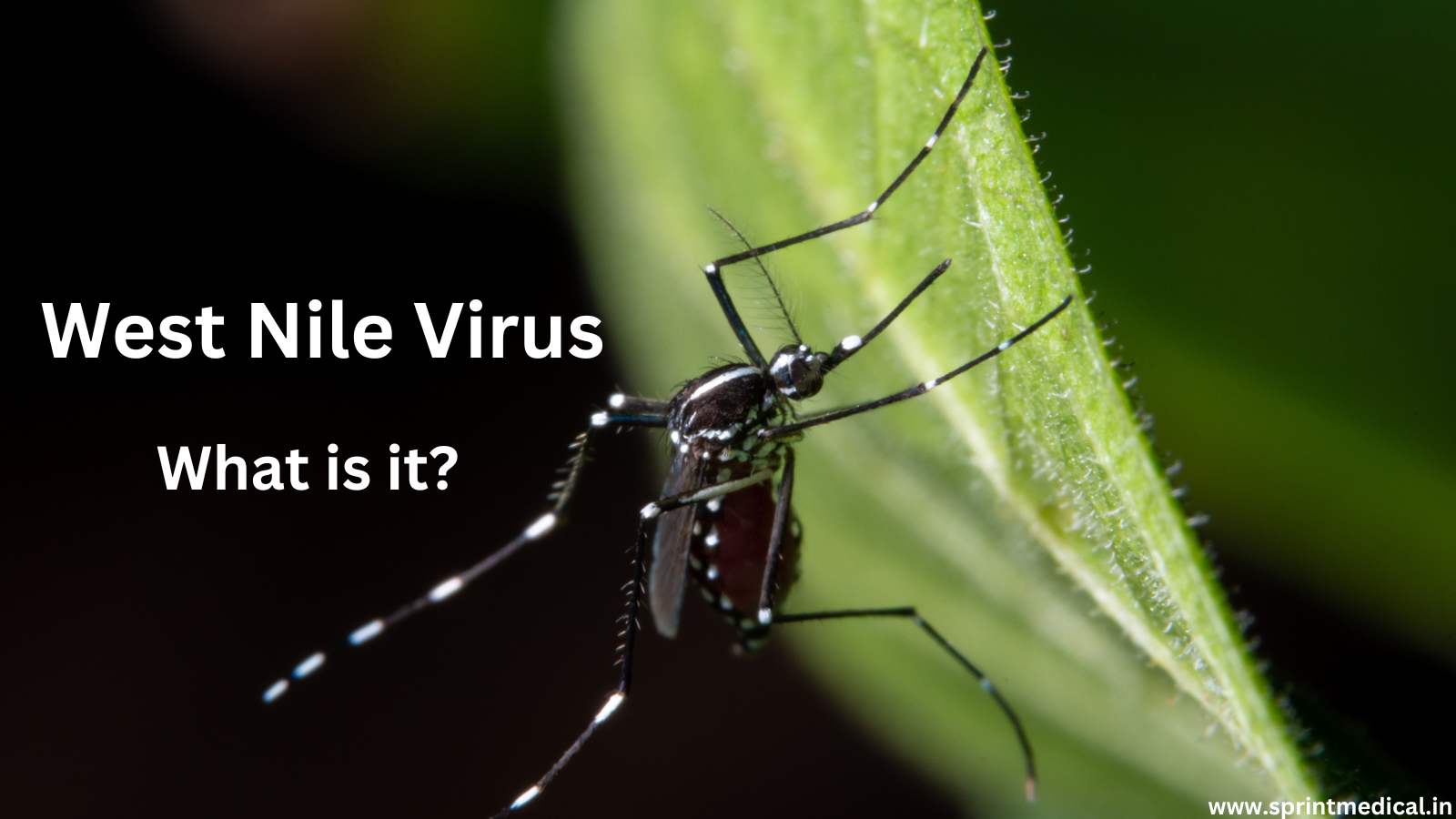17/01/2023 / Health and Fitness
What is the West Nile Virus?
West Nile Virus, which has a mortality rate of 12-15%, is a well-known viral infection in Europe, Africa, America and West Asia.

Table of Content
Introduction
Just like malaria and dengue, the West Nile virus is spread through mosquito bites. Around 70 to 80 per cent of those who catch this viral infection don't show any symptoms. Around 20 per cent show milder symptoms and only 10 per cent of people develop serious complications. In this article, you will get to know about the symptoms, treatments and prevention tips for the West Nile virus.
West Nile Virus Origin and Outbreaks
The first West Virus outbreak occurred in Uganda in 1937. From here, it spread to the United States causing heavy losses to human lives. Other than the United States, other countries which saw this virus outbreaks are Canada, Israel, Romania, Greece, Italy and Spain.
Symptoms of West Nile Virus
The early signs of viral infection will show up around 3 to 14 days after being bitten by the mosquito. Most of the infections would not be severe. But if you catch a serious infection, you may experience:
Confusion
Febrile illness (Fever)
Numbness
Vision loss
Paralysis
Convulsions
Muscle weakness
Coma

A severe west Nile virus infection can stay for several weeks and even cause permanent brain damage.
People catching a less severe west Nile virus infection often confuse their symptoms with flu. Some of the prominent signs of mild west Nile infection include,
Headache
Nausea
Vomiting
Body aches
Fever
Swollen lymph nodes
Rashes
Causes of West Nile Virus
West Nile virus is spread by mosquitoes as vectors with birds being the host between humans and mosquitoes. The infection is spread when the mosquito bites an infected bird and then bites a human being. On rare occasions, the infections can also occur during blood transfusions, organ transplants, pregnancy and breastfeeding.
Risk Factors of West Nile Virus
Anyone can get serious symptoms of West Nile virus but these are some of the risk factors that increase the incidence of suffering fatal infections,
Older age
Diabetes
Kidney issues
Cancer
Compromised immune system
How to Test for West Nile Virus?
You can get tested for west nile infection just by doing a simple blood test. The blood indicates the infection through the genetic material or antibodies associated with the virus.
If you show symptoms of brain damage, your healthcare provider may do a lumbar puncture (extracting fluid from the spine to count WBCs), MRI and other imaging tests to know the extent of brain swelling and inflammation.
West Nile Virus Treatment
There isn't a specific vaccine discovered yet for treating the West Nile virus. So, the best possible ways available for treating the viral infection are rest, fluids and OTC pain medicines. If you catch serious infections, you need immediate hospitalization as there is a risk of brain damage.
West Nile Virus Prevention
The biggest risk of the west nile virus is the mosquito. So, staying away from the disease requires protecting yourself from mosquito bites. Here are some effective ways to safeguard yourself.

Apply insect repellents like DEET, Picaridin, IR3535, Lemon Eucalyptus oil, Para menthane diol and 2-undecanoate.
Keep your place hygienic and clean so that they don't become the breeding ground for mosquitoes.
Always sleep with mosquito nets covered on your bed.
For babies, dress them up with full sleeves and cover their strollers with mosquito nets.
Take-Home Points
West Nile virus spreads through mosquito bites.
Serious infections from the West Nile virus can cause brain damage, coma and death.
The possible treatments for this viral infection are fluids, rest and pain medications.
References
FAQ on West Nile Virus
People who get infected with the West Nile virus develop body aches, joint pains, vomiting, diarrhoea and rashes. This virus has around a 12-15% mortality rate.
When people catch serious infections of the west Nile virus which affects the brain causing encephalitis or meningitis, the chance of survival becomes slim.
As of now, there are no vaccines available for West Nile viruses. So the best way to counter this virus is to let your body fight by supplementing it with proper medicines and diet.
Yes! West Nile virus can cause death.
It can take anywhere from one week to several months depending on the severity of the infection.
The West Nile virus has an incubation period of almost 2 to 4 days.
The most common symptoms of the West Nile virus are joint pain, vomiting, diarrhoea, rashes and headaches.
Mosquitoes of the genus Culex are vectors of the West Nile virus.
West Nile virus was first isolated from a woman in Uganda in 1937.
West Nile virus is found mostly around Africa, Europe, the Middle East, North America and West Asia.
Yes! The antibodies against the West Nile virus were found in Mumbai in 1952.
Comments ( 0 )
No Comments
Leave a Comment
Related Posts
18 Natural Home Remedies for Malaria
Home remedies for malaria can really help you feel better. In this article, you will get the best home remedies of malaria that can help you in getting rid of it.
10 Signs and Symptoms of Malaria
Everything to know about malaria - Signs, symptoms, causes, risk factors, treatment, and prevention of this disease.
Keerthana A P
Dengue: Symptoms, causes, prevention, treatment and platelet count
Learn about Dengue symptoms and the significance of Dengue platelet count. Understanding the impact of platelets in Dengue fever.
Health & Wellness Tips
Subscribe to our blog